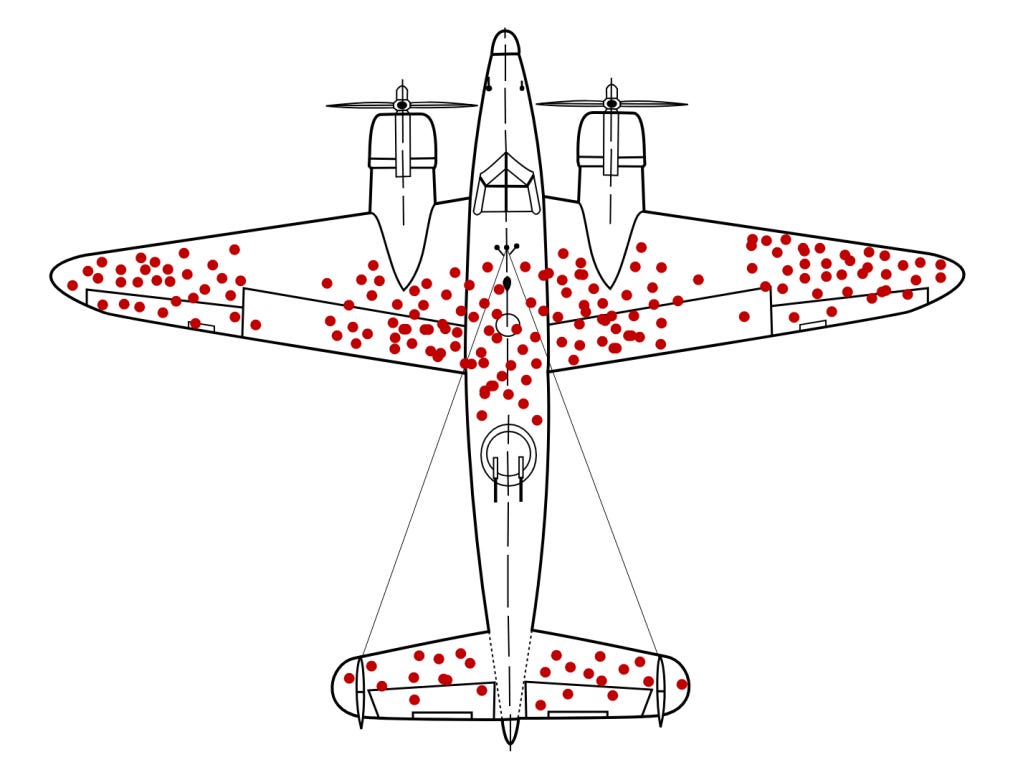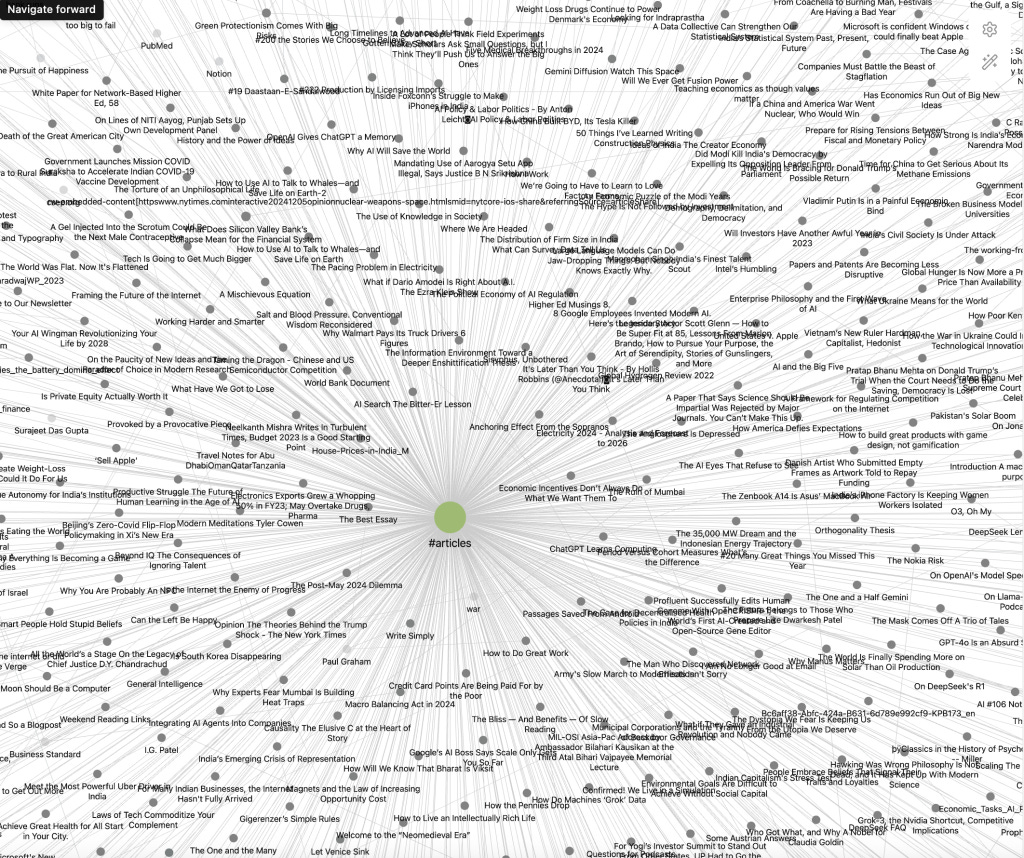Friction and Weak Links: Part One
Physical notebooks. Microsoft OneNote. Evernote. Google Keep. Google Reader. Feedly. Roam Research. Anki. Obsidian. Readwise. Mem.ai. Notion. This Blog. NotebookLM.
For most of you, this list will seem somewhat and vaguely familiar. For some of you, this list will be mostly familiar, and slightly depressing. For a very small minority, this list will be extremely triggering.
That last group, that little minority - you are my people.
The Ideal Note Taking System (Doesn't Exist)
The reason that list is triggering for us is because we have climbed each of those hills, and tried to make each of those hills our home. Each of those hills has, for at least a little while, promised to be just what we were looking for.
And each of those hills has, sooner or later, disappointed in one way or the other. We have realized, with a heavy heart, that we must resume our weary journey. And we have moved on.
And over time, we have come to realize that there probably doesn't exist (and horror of horrors, there probably never will) a hill that has all of what we are looking for. If one hill has a good tagging system, the other has a good search system. If one allows for good back links, the other is far cheaper. If one is intuitive, the other is feature-rich. If one works across all platforms, the other has an ability to chat with your highlights.
But there simply isn't one that ticks all boxes. And like I said, there may well never be one that does.
If you are brushing away a tear from the corner of your eye, well met, good friend, well met. A virtual hug to you, dear reader, for you are on the same holy quest that I have been on for years on end.
What quest, you ask?
How To Set Up A Note Taking System That Just Works?
Read a Lot, Forget A Lot
I read a fair bit, and probably consume more information via reading than does the average person. I subscribe to a lot of blogs via RSS, am addicted to scrolling through Twitter and clicking on links I find interesting. I subscribe to the New York Times, the Indian Express, the Economist, Live Mint, the Business Standard, and to Noah's newsletter. Friends send me interesting articles, sometimes as PDFs, sometime as screenshots, and sometimes as WhatsApp messages. I watch a lot of YouTube videos (too many, and not all of them are informative), listen to podcasts every now and then, and usually am reading two books at any given moment on my Kindle. There are snippets of conversations that I have with interesting people, whether in person or over a phone-call that I would dearly like to remember. Shower thoughts are a thing with me, as is the case with a lot of people. I receive interesting newsletters in my inbox, I take photos of interesting things written on walls, on posters, I scribble notes on whatever notebook is lying close to hand, and have interesting conversations in Google Chat, on Signal and on occasion, on LinkedIn or Twitter DMs. I will sometimes pick up a physical book at home, while traveling, or at a friend's place, and fall in love with a particular line or paragraph. I will hear a line in a TV show, or while watching a movie that will resonate with something else that I have read, heard or seen.
And when I teach a class, or when I discuss a topic with someone, I will pull together wildly different ideas across all of these things that I have consumed, and make connections that amaze both me, and the folks around me. And I am often lauded for my ability to do so, both by my students, and by folks I end up having conversations with regularly.
To which I have only one, deeply felt response:
Pah!
And the reason I say "Pah!" is because of two words, or one picture:
Don't be impressed by the connections I am able to make. Despair, instead, at the millions of connections that I should be making, but don't, because I am unable to recollect so many hajjar other things.
And in an effort to get better at making those connections, I keep climbing one or more of those hills after another, and have done so for the last twenty years. I currently stay on a bridge I have constructed between Mt. Readwise and Mt. Obsidian, and am reasonably happy here. I'm not in heaven, mind you, but it is not a bad place to be, at least relative to other bridges I've tried to build between other hills.
But even this bridge will collapse one day, I can tell. How, you ask, can I possibly know this in my bones? Here, take a look for yourself:
That's the Knowledge Graph view from one of my Obsidian installations, and this is a zoomed-in view of tags from only the articles I have read within Readwise.
The point is not to impress you with "how much I read". Rather, the point is to depress you with how little I am able to remember and use from all of what I read.
The Four C's of Information
On a typical day, I will scan through at least a hundred blogposts, and might read a dozen or so carefully, and sometimes more than once. I will scan through at least one general newspaper, and one financial broadsheet. I will watch at least thirty minutes of YouTube videos (and this will always include one recipe, and one "interesting video"). I will usually finish at least ten pages of a book. And in addition to this, there will be at least twenty other sentences, snippets, highlights or factoids that I will find interesting in any one given day. Take all of this (sometimes more, sometimes a little bit less) as the typical amount of information that I CONSUME in a day.
Every now and then, a lightbulb will go off in my head, and I will make connections across two different topics. For example, I may read an essay about agricultural reforms in China, and think about how we rolled out farm reform laws in our country. Or I may think about the NRC, and realize that we can think about it in a Type I/Type II framework. Or I may think up a fun way to convert a perennial argument between my wife and I into a class on statistics.
When I do this - when I make connections between different ideas from different domains in my head, three truly wonderful things happen. First, I make that connection, which strengthens both ideas in my head. Second, I wonder about concepts related to both of these ideas, which helps make even more connections in my head, both within each of those domains and sometimes, across even more domains. And third, I think about ways in which that connection or analogy does not work, and this too strengthens both ideas in my head.
Other times, I get into an argument with folks about a particular idea. This is especially welcome, because that allows me to really and truly get that idea drilled into my head. When I attack or (even better) defend an idea, it really and truly "settles" into my head. If you want to give me a gift, debate an idea with me, please.
Still other times, I talk about an idea in class. With all of these things, what I am doing is not just consuming that idea, but I am making a home for that idea in my head. I am engaging with it, refining it, building connections with other ideas. All of this allows me to CONCRETIZE the idea in my head.
Think of a pyramid with a very, very broad base. That very, very broad base is all of the information that I consume. For a relatively small fraction of that base, I am able to concretize that which I have consumed. It now becomes "fixed" enough in my head that I am able to use that information meaningfully, in order to think about it in a constructive way.
This gets me to stage three: I can CONSTRUCT a structure of various thoughts, enough for me to be able to not just retain a thought, or even retain it well, but also to be able to use it to construct a series of arguments, related thoughts and a semblance of an outline.
And finally, that brings me to stage four: it is only now that I can use this construction in my head to CREATE an essay, a blog post, a lecture or something else that is fit for consumption outside of my head. What you're reading now is my creation, but for it to become my creation, a lot of things had to happen. I had to consume information, concretize some of it, construct something out of the bits I managed to concretize, and finally add enough of a scaffolding around my construction to make it palatable to you.
How Do I Get Better At This?
Of the four C's, I'm addicted to the first. I'm always consuming information. That's the good news.
I'm barely ok at creating output these days. I used to be fairly regular on this blog, but have struggled to write on a daily basis over the past year or so. But I've done enough writing in the past to know that I have it within me. Getting better at something that I used to be good at may well be tough, but it is by no means impossible. That's the ok news.
It is the two C's in the middle - the concretizing of the information that I have consumed, and the construction of a series of thoughts - that I continue to struggle with.
And it is here that I wish technology would help.
How?
We'll get to that bit in the next post.



